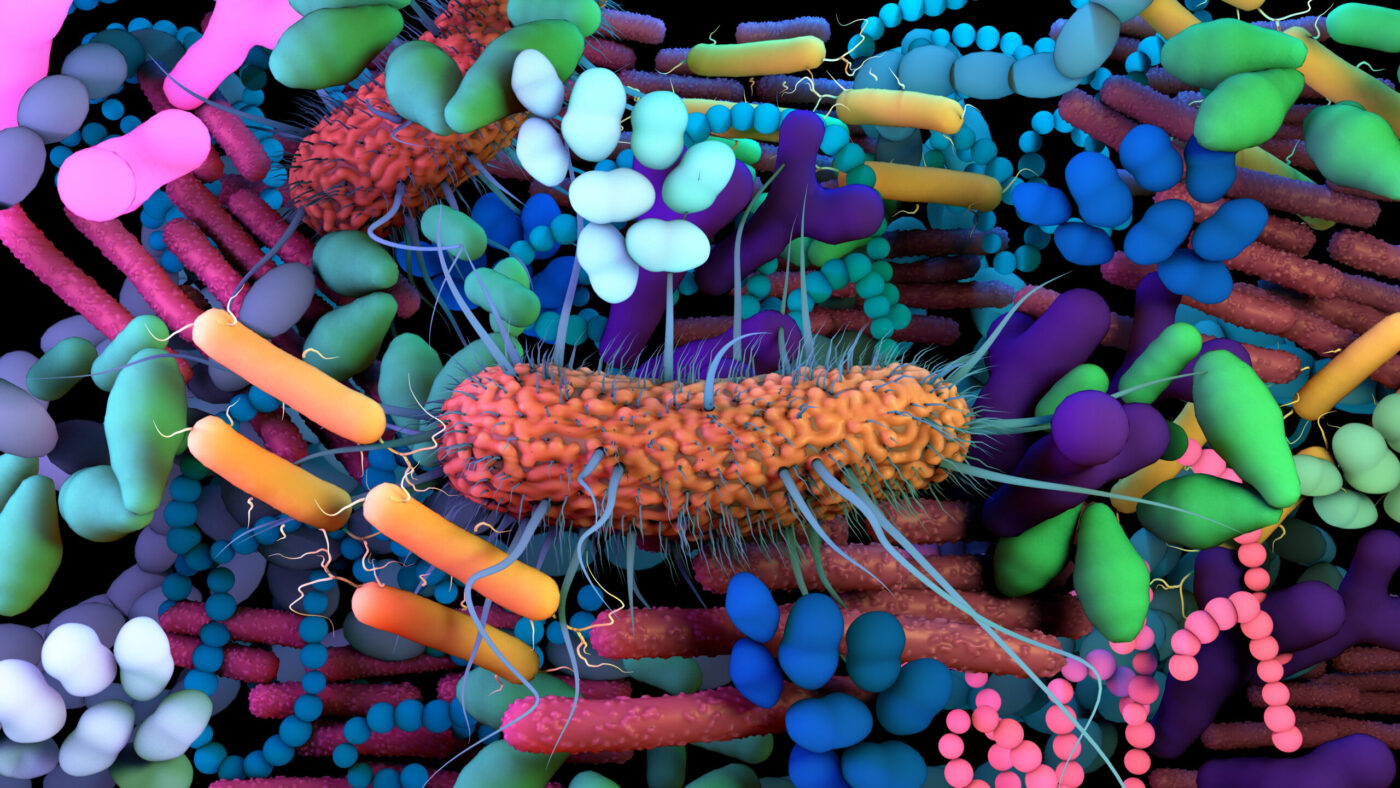Gut Health: How Your Microbiome Affects Overall Wellness

The human Microbiome
I. Introduction to Gut Health and the Microbiome
Definition of the Gut Microbiome
The gut microbiome refers to the complex community of microorganisms living in the human digestive tract. It consists of bacteria, archaea, viruses, and fungi, with bacteria being the most studied and significant in terms of human health. These microscopic inhabitants play a crucial role in digesting food, synthesizing essential nutrients, and protecting against pathogens.
Overview of the Gut’s Role in the Body
Traditionally, the gut is recognized for its digestive functions; however, research reveals its far-reaching influence on overall health. The gut is not only pivotal in nutrient absorption and waste elimination but also plays a key role in the immune system, brain function, and even emotional well-being. This multifaceted impact underscores the gut’s significance beyond mere digestion.
Historical Perspective on Microbiome Research
The study of the human microbiome has evolved significantly over the years. Early research in the 20th century laid the groundwork by identifying microorganisms present in the gut using culture-based methods. The advent of high-throughput DNA sequencing technologies in the 21st century has revolutionized our understanding, enabling scientists to explore the genetic material of these communities in unprecedented detail. This shift has catapulted the field forward, uncovering the extensive diversity of the gut ecosystem and its integral role in health and disease.
II. The Complex World of the Gut Microbiome
Composition and Diversity of Gut Bacteria
The human gut is inhabited by a myriad of microorganisms, with bacteria being the most prevalent. These bacteria are not mere passengers; they play critical roles in our health and well-being.
- Types of Bacteria and Their Functions: The gut microbiome is composed of hundreds of species of bacteria, each with unique roles. Some bacteria are involved in breaking down dietary fiber into short-chain fatty acids (SCFAs), which serve as an energy source for gut cells and have anti-inflammatory effects. Others are crucial for synthesizing vitamins B and K, essential for blood coagulation and bone health.
- Factors Influencing Microbiome Diversity: Diet, age, genetics, lifestyle, and antibiotic use can all impact the diversity and composition of the gut microbiome. A diverse microbiome is generally associated with better health, as it is more resilient to disturbances and better equipped to perform various functions.
The Gut-Brain Axis: Understanding the Communication Between the Gut and the Brain
The gut-brain axis is a complex communication network that links the central nervous system and the gastrointestinal tract. This bidirectional pathway involves neural, hormonal, and immunological signals.
- Neurotransmitter Production and Mood Regulation: Many people are surprised to learn that the gut produces a significant amount of neurotransmitters, such as serotonin, which plays a pivotal role in mood regulation. This production underscores the connection between gut health and mental health.
- Impact on Mental Health: Anxiety, Depression, and Beyond: Research has shown that imbalances in gut bacteria can contribute to various mental health issues, including anxiety and depression. Probiotics and dietary changes have shown promise in improving mental health outcomes by modulating the gut microbiome.
The Immune System and the Microbiome
The gut microbiome is intricately linked to the immune system, with ongoing communication that helps maintain balance and prevent disease.
- Gut Health’s Role in Inflammation and Autoimmune Diseases: A healthy gut contributes to a well-functioning immune system, helping to protect against pathogens while preventing excessive inflammation. Conversely, dysbiosis (an imbalance in gut bacteria) can trigger chronic inflammation and increase the risk of autoimmune diseases.
- Mechanisms of Immune Modulation by Gut Bacteria: Gut bacteria influence the immune system through various mechanisms, including the modulation of T cells and the production of SCFAs. These interactions can enhance immune tolerance and reduce the risk of allergic reactions and autoimmune conditions.
III. Gut Health and Chronic Diseases
Link Between the Microbiome and Metabolic Syndrome
The gut microbiome plays a significant role in metabolic processes, affecting obesity, type 2 diabetes, and cardiovascular disease. Dysbiosis has been linked to increased inflammation, insulin resistance, and lipid metabolism alterations, contributing to the development of these conditions.
Influence on Digestive Disorders
Gut bacteria imbalance is also implicated in several digestive disorders, including Irritable Bowel Syndrome (IBS) and Inflammatory Bowel Diseases (IBD) such as Crohn’s disease and ulcerative colitis. Modulating the gut microbiome through diet and probiotics shows promise in managing these conditions.
Potential Connections to Other Conditions
Emerging research suggests the gut microbiome may influence a wide range of other health conditions, from skin health issues like eczema and acne to allergies and asthma. These connections underscore the microbiome’s extensive impact on overall health and the potential for targeted microbiome therapies.
IV. Factors Affecting Gut Health
Diet’s Impact on the Microbiome
Diet plays a pivotal role in shaping the gut microbiome, with certain foods promoting a diverse and healthy microbial community. High-fiber foods, such as fruits, vegetables, and whole grains, support the growth of beneficial bacteria, while a diet high in processed foods and sugars can lead to dysbiosis.
Antibiotics and the Microbiome
While antibiotics are essential for treating bacterial infections, their overuse and misuse can disrupt the gut microbiome, reducing diversity and leading to an increase in antibiotic-resistant bacteria. It’s crucial to use antibiotics judiciously and explore strategies to restore gut health post-treatment.
The Role of Prebiotic and Probiotic Supplements
For those unable to get enough prebiotics and probiotics through diet alone, supplements can be an effective alternative. However, it’s important to choose supplements based on quality and the specific strains they contain, as different strains have different effects.
Lifestyle Factors
Lifestyle choices, including stress levels, sleep quality, and physical activity, also significantly impact the gut microbiome. Chronic stress and inadequate sleep can negatively affect microbial diversity, whereas regular exercise has been shown to improve gut microbial health.
V. Wrapping It Up
The exploration of the gut microbiome reveals a fascinating and complex world within us, profoundly influencing our health and well-being. From its pivotal role in digestion, immune function, and even mental health, the microbiome stands at the intersection of numerous physiological processes.
This article has highlighted the importance of maintaining a healthy and diverse gut microbiome through diet, lifestyle choices, and mindful use of antibiotics. It’s clear that our gut bacteria are not just passive inhabitants but active participants in our health, offering promising avenues for preventing and treating a wide range of diseases.
As we continue to unravel the mysteries of the gut microbiome, the potential for personalized medicine and nutrition based on our unique microbial composition becomes increasingly tangible. By taking proactive steps towards nurturing our gut health, we not only improve our digestive wellness but also enhance our overall quality of life. The journey into the world of the microbiome is just beginning, and its implications for future health care and daily living are as exciting as they are vast.
References:
- Human Microbiome Project Consortium. (2012). Structure, function and diversity of the healthy human microbiome. Nature, 486(7402), 207–214.
- Sender, R., Fuchs, S., & Milo, R. (2016). Revised Estimates for the Number of Human and Bacteria Cells in the Body. PLOS Biology, 14(8), e1002533.
- Clemente, J. C., Ursell, L. K., Parfrey, L. W., & Knight, R. (2012). The Impact of the Gut Microbiota on Human Health: An Integrative View. Cell, 148(6), 1258–1270.
- Gilbert, J. A., Blaser, M. J., Caporaso, J. G., Jansson, J. K., Lynch, S. V., & Knight, R. (2018). Current understanding of the human microbiome. Nature Medicine, 24(4), 392–400.
- Flint, H. J., Scott, K. P., Duncan, S. H., Louis, P., & Forano, E. (2012). Microbial degradation of complex carbohydrates in the gut. Gut Microbes, 3(4), 289–306.
- Cryan, J. F., & Dinan, T. G. (2012). Mind-altering microorganisms: the impact of the gut microbiota on brain and behaviour. Nature Reviews Neuroscience, 13(10), 701–712.
- Belkaid, Y., & Hand, T. W. (2014). Role of the microbiota in immunity and inflammation. Cell, 157(1), 121–141.
- Honda, K., & Littman, D. R. (2016). The microbiota in adaptive immune homeostasis and disease. Nature, 535(7610), 75–84.
- Turnbaugh, P. J., Ley, R. E., Mahowald, M. A., Magrini, V., Mardis, E. R., & Gordon, J. I. (2006). An obesity-associated gut microbiome with increased capacity for energy harvest. Nature, 444(7122), 1027–1031.
- Frank, D. N., St. Amand, A. L., Feldman, R. A., Boedeker, E. C., Harpaz, N., & Pace, N. R. (2007). Molecular-phylogenetic characterization of microbial community imbalances in human inflammatory bowel diseases. Proceedings of the National Academy of Sciences, 104(34), 13780–13785.
- Arck, P., Handjiski, B., Hagen, E., Pincus, M., Bruenahl, C., Bienenstock, J., & Paus, R. (2010). Is there a ‘gut-brain-skin axis’? Experimental Dermatology, 19(5), 401–405.
- Conlon, M. A., & Bird, A. R. (2015). The impact of diet and lifestyle on gut microbiota and human health. Nutrients, 7(1), 17–44.
- Jernberg, C., Löfmark, S., Edlund, C., & Jansson, J. K. (2010). Long-term impacts of antibiotic exposure on the human intestinal microbiota. Microbiology, 156(Pt 11), 3216–3223.
- Monda, V., Villano, I., Messina, A., Valenzano, A., Esposito, T., Moscatelli, F., … Messina, G. (2017). Exercise Modifies the Gut Microbiota with Positive Health Effects. Oxidative Medicine and Cellular Longevity, 2017, 3831972.
- Gibson, G. R., Hutkins, R., Sanders, M. E., Prescott, S. L., Reimer, R. A., Salminen, S. J., … & Reid, G. (2017). Expert consensus document: The International Scientific Association for Probiotics and Prebiotics (ISAPP) consensus statement on the definition and scope of prebiotics. Nature Reviews Gastroenterology & Hepatology, 14(8), 491–502.
- Hill, C., Guarner, F., Reid, G., Gibson, G. R., Merenstein, D. J., Pot, B., … & Sanders, M. E. (2014). Expert consensus document. The International Scientific Association for Probiotics and Prebiotics consensus statement on the scope and appropriate use of the term probiotic. Nature Reviews Gastroenterology & Hepatology, 11(8), 506–514.
- Mailing, L. J., Allen, J. M., Buford, T. W., Fields, C. J., & Woods, J. A. (2019). Exercise and the Gut Microbiome: A Review of the Evidence, Potential Mechanisms, and Implications for Human Health. Exercise and Sport Sciences Reviews, 47(2), 75–85.

